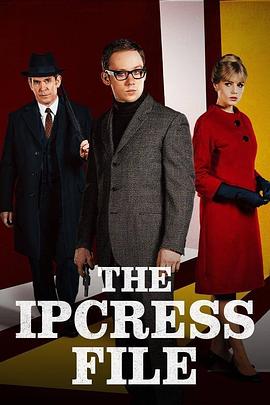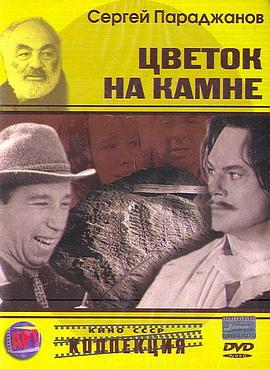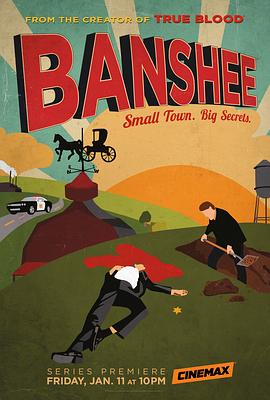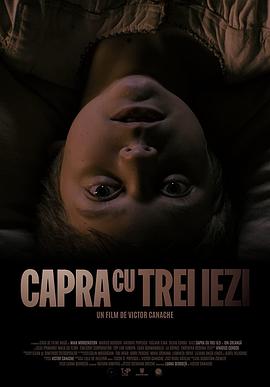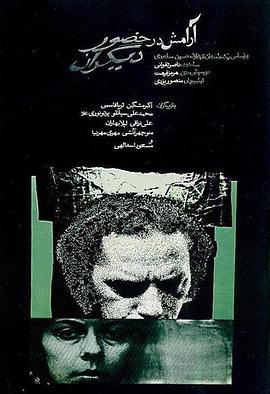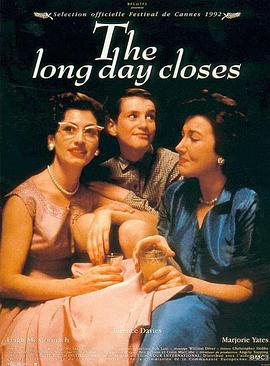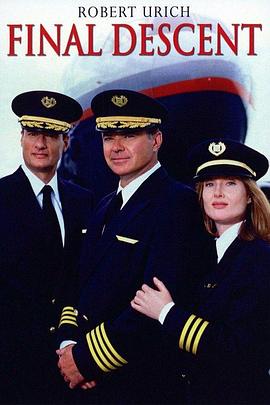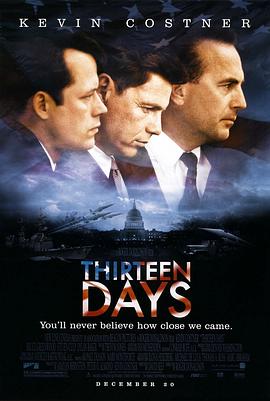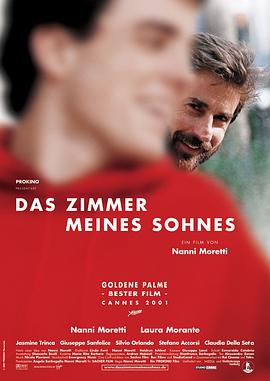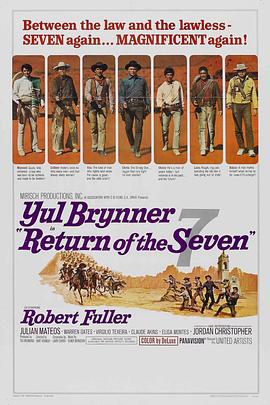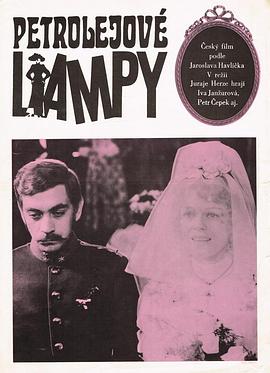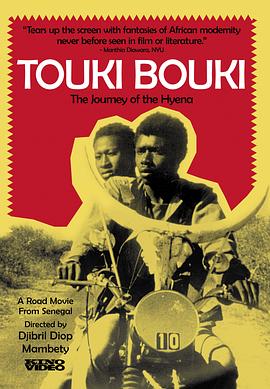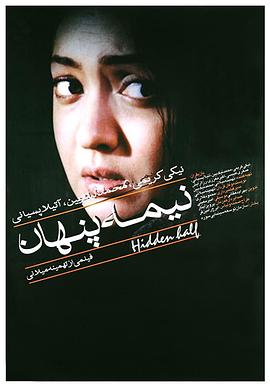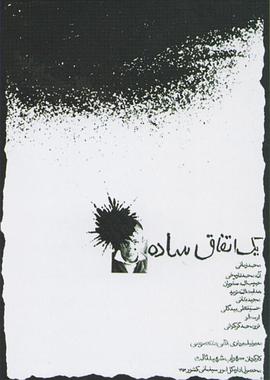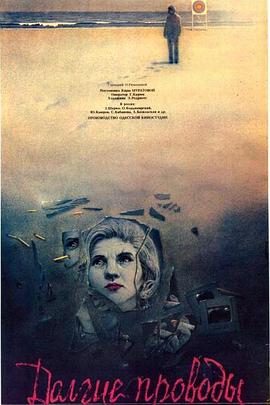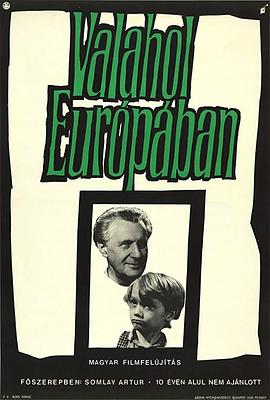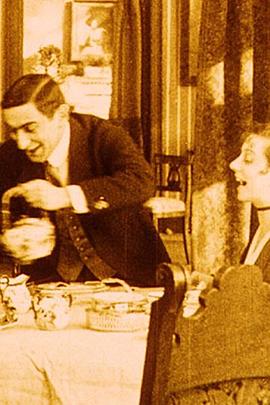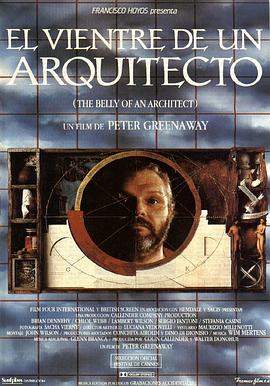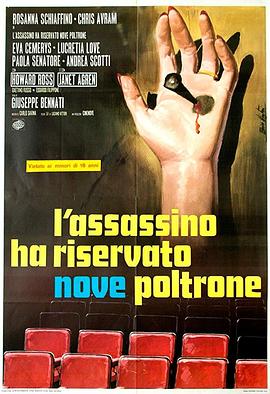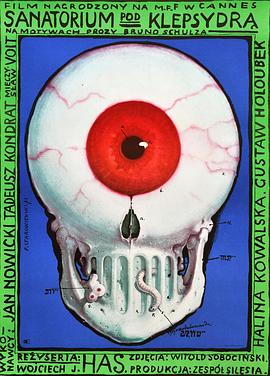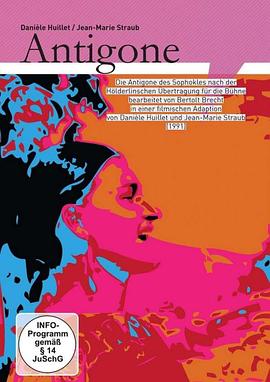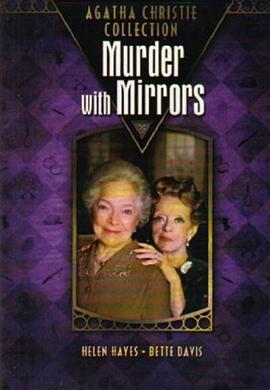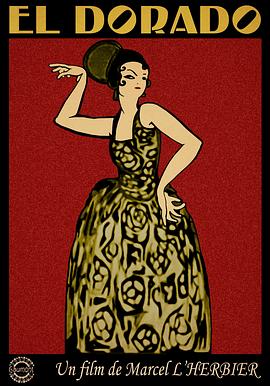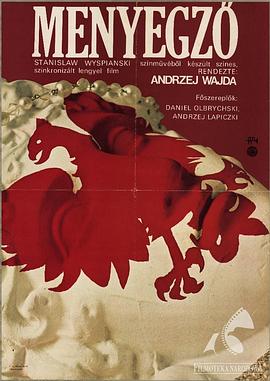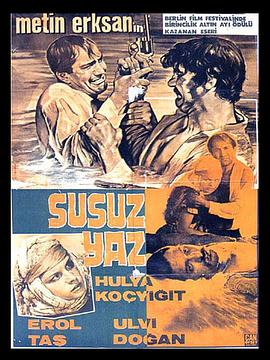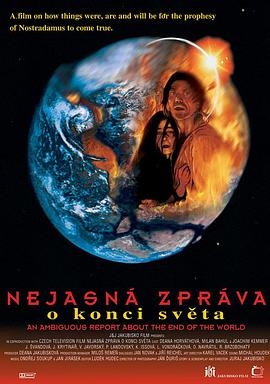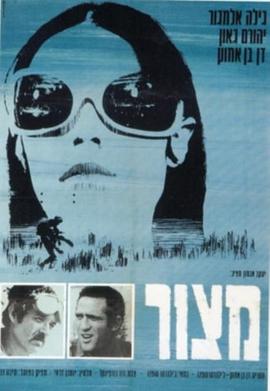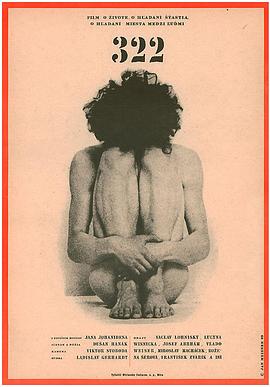La
搜索"La",找到5621部影视作品
导演:
/格雷格·艾坦尼斯
主演:
剧情:
该剧由《真爱如血》(True Blood)制片人Alan Ball打造。 故事发生在宾夕法尼亚的Banshee镇,曾经坐过牢的诈骗大师兼飞天大盗lucas(安东尼·斯塔尔 Antony Starr 饰)拿到了Banshee警长的身份,取代他成为了当地执法者。在小镇服役时间最长的警官Brock(马特·索维托 Matt Servitto 饰)本有希望成为警长,而lucas的到来威胁到他的地位。lucas发现他过去的情人Carrie(伊万娜·米利塞维奇 Ivana Milicevic 饰)改名生活在小镇,并嫁给了当地检察官。一方面,lucas用他新的合法身份继续秘密地犯罪,另一方面,暴徒冷血无情的乌克兰黑帮成员兔子先生(本·克劳斯 Ben Cross 饰),15年来一直在追踪lucas和Carrie的下落。但是一切都在lucas进入Banshee镇后变得不一样起来......
导演:
/Victor Canache
主演:
剧情:
与世隔绝,在19世纪的罗马尼亚农村,一个寡妇和三个孩子的母亲必须不惜一切代价保护她剩下的家庭,从一个旧的家庭朋友变成敌人。这部电影根据罗马尼亚最著名的民间故事之一(Ion Creanga的《山羊和她的三个孩子》)改编,旨在揭示这个著名的睡前故事的真实本质,并以不同的视角向观众展示,让观众在快乐的歌曲和和蔼可亲的角色之外,一窥悲剧的本质。
导演:
/特伦斯·戴维斯
主演:
剧情:
镜头聚焦在一个名叫巴德(Leigh McCormack 饰)的男孩身上,巴德很早就失去了父亲,和母亲(Marjorie Yates 饰)以及哥哥一起过着相依为命的生活。整个童年时代在巴德的回忆里都笼罩在孤独和寂寞之中,在学校里,他一个人上课,一个人发呆,一个人回家,还要是不是的提防班上强壮的男生对他的威胁和嘲笑。 回家后,巴德也总是一个人待着,母亲建议他多和朋友们在一起玩,但她并不知道的是,巴德甚至都没有一个能真正称得上朋友的伙伴。巴德整日里将时间花在观察凝听这个世界和胡思乱想上,入夜,可怕的噩梦便会找上门来。就这样日复一日,巴德长大了,当再度回忆这段平凡而又独特的童年时,巴德会有怎样的感受呢?
导演:
/Mike Robe
主演:
剧情:
绰号“LUCKY”的葛蓝是一名出色的战斗机飞行员,但他厌倦了血与火的生活,于是申请从空军退役,任职于一家航空公司。 然而,民航飞行员的生涯也不是一帆风顺的。一次他飞行途中刚刚升空就遇上乱流,导致客机与一架直升机凌空相撞,一个引擎报废,机身严重受损并失去平衡,虽然不至于立即坠毁,但只能向上爬升不能下降。 一切是这样措手不及,燃料却只剩下两小时,在这短短的时间里他要经历一生中最大的挑战,319名乘客的性命完全操纵在他的手上…… 无奈之中,地面控制中心请求空军派遣一架空中加油机协助救援,军机也唯有冒险一试:先扫射客机尾翼,使其停止继续爬升,然后通过加油管道向客机机头注水,试图恢复机身平衡。 在这期间,葛蓝和客机的空乘人员们要面临机身破损失压、氧气不足、机舱气温急剧下降的巨大风险…… 他们能否从地狱门口平安返航,降落人间呢……
导演:
/罗杰·唐纳森
主演:
剧情:
1962年10月14日,一则由飞临古巴上空U-2侦察机所拍摄照片中透露的情报信息,引发了一场当时世界两大超级大国美国与苏联之间的空前危机。美国情报官员在这组情报资料中发现,苏联正在距离佛罗里达不到150公里的古巴首都哈瓦那西南的圣克利斯托瓦尔修建基地,部署中短程导弹和运 载核武器的伊尔-28重型轰炸机,这些导弹足以摧毁全美各大城市并且造成重大伤亡。全美上下陷入极度恐慌之中,也将整个世界推向了核灾难的边缘。总统约翰·肯尼迪(布鲁斯·格林伍德 Bruce Greenwood 饰)和其弟罗伯特·肯尼迪(斯蒂文·卡普Steven Culp 饰)沉着应对这场一触即发的核战危机,影片透过白宫高级特别助理肯尼斯·奥唐纳(凯文·科斯特纳 Kevin Costner 饰)之眼,再现了危机重重的惊天十三日。
导演:
/南尼·莫莱蒂
剧情:
伊凡尼(南尼·莫莱蒂 Nanni Moretti 饰)有一个和睦温暖的家庭,儿子安德烈和女儿艾琳更是让这个家庭乐也融融。而伊凡尼身为心理医生,常常接触到各式各样的心理病患者,从而更加珍惜目前的生活。然而生活的残酷随之而来,在一个看上去平常的早晨,却传来了一个令这个家庭为之崩溃的消息——儿子在潜水运动中遇上不测,不幸身亡。 伊凡尼一家顿时陷入了一篇黑暗当中,母亲终日以泪洗脸,姐姐艾琳压抑着痛苦照顾悲伤的父母,而父亲,更是因为过度悲痛而不能继续工作。而儿子空空如也的房间,深深刺痛了每个家人的心。 远方寄来一个女孩子的来信,来信成全了家人对儿子的追思,并令到这个家庭重新有了一丝生机。然而逝者如斯,各人内心的伤痛,只有时间能慢慢治疗。
导演:
/伯特·肯尼迪
主演:
剧情:
Chico one of the remaining members of The Magnificent Seven now lives in the town that they (The Seven) helped. One day someone comes and takes most of the men prisoner. His wife seeks out Chris, the leader of The Seven for help. Chris also meets Vin another member of The Seven. They find four other men and they go to help Chico.
导演:
/尤拉伊·赫兹
剧情:
In small czech town named Jilemnice live unfortunate, but brave and jovial woman Štěpa Kiliánová, whose only desire was to fill the void in her virgin life. In despair and excessive trust, she married a sardonic, reclusive man, former lieutenant and gambler Pavel Malina, whose only wish was finally found peace and forgetting the past. They lived through unrequited love, dislike and disappointment. But no one knew that her groom begin to show signs of cerebral disease, which in the coming years engulf his sanity.
导演:
/琪拉·穆拉托娃
主演:
剧情:
It is a great film by a great director.Kira Muratova has never been given her due in the Soviet and post-Soviet Russia.In the "Long Good Bye" she depicts a seemingly banal story of a jealous and possessive mother (brilliantly acted by Zinaida Sharko) and her poor aloof and lonely son (the only cinematic role by the talented O. Vladimirsky). The story - which is nothing extraordinary in itself - grows into the wonderful and frightening analysis of alienation between genders and generations on the background of the even more frighteningly bleak and dehumanized Soviet reality.Kira Muratova shows the tiny details of everyday Soviet life,and, again , banal as they are ,they are a hair-raising horror.The dialogue is deliberately laconic and void of any sense, showing the ever-growing people's inability to communicate and understand each other.The sound track ( by another under-estimated talent, Oleg Karavaichuk)adds to the atmosphere of hopeless and meaningless existence.Of course,Sasha (the name of the protagonist),will leave his despotic ( but loving!) mother sooner or later, but where for? (c)
导演:
/Radványi Géza
主演:
剧情:
Somewhere in the remote region, the war ends. In the midst of ruined cities and houses in the streets, in rural hamlets, everywhere where people still live, are children who have lost their homes and parents. Abandoned, hungry, and in rags, defenseless and humiliated, they wander through the world. Hunger drives them. Little streams of orphans merge into a river which rushes forward and submerges everything in its path. The children do not know any feeling; they know only the world of their enemies. They fight, steal, struggle for a mouthful of food, and violence is merely a means to get it. A gang led by Cahoun finds a refuge in an abandoned castle and encounters an old composer who has voluntarily retired into solitude from a world of hatred, treason, and crime. How can they find a common ground, how can they become mutual friends? The castle becomes their hiding place but possibly it will also be their first home which they may organize and must defend. But even for this, the price will be very high. To this simple story, the journalist, writer, poet, scriptwriter, movie director, and film theoretician Béla Balázs applied many years of experience. He and the director Géza Radványi created a work which opened a new postwar chapter in Hungarian film. Surprisingly, this film has not lost any of its impact over the years, especially on a profound philosophical level. That is to say, it is not merely a movie about war; it is not important in what location and in what period of time it takes place. It is a story outside of time about the joyless fate of children who pay dearly for the cruel war games of adults. At the time it was premiered, the movie was enthusiastically received by the critics. The main roles were taken by streetwise boys of a children's group who created their roles improvisationally in close contact with a few professional actors, and in the children's acting their own fresh experience of war's turmoil appears to be reflected. At the same time, their performance fits admirably into the mosaic of a very complex movie language. Balázs's influence revealed itself, above all, in the introductory sequences: an air raid on an amusement park, seen in a montage of dramatic situations evoking the last spasms of war, where, undoubtedly, we discern the influence of classical Soviet cinematography. Shooting, the boy's escape, the locomotive's wheels, the shadows of soldiers with submachine guns, the sound of a whistle—the images are linked together in abrupt sequences in which varying shots and expressive sharp sounds are emphasized. A perfectly planned screenplay avoided all elements of sentimentality, time-worn stereotypes of wronged children, romanticism and cheap simplification. The authors succeeded in bridging the perilous dramatic abyss of the metamorphosis of a children's community. Their telling of the story (the scene of pillaging, the assault on the castle, etc) independently introduced some neorealist elements which, at that time, were being propagated in Italy by De Sica, Rossellini, and other film artists. The rebukes of contemporary critics, who called attention to "formalism for its own sake" have been forgotten. The masterly art of cameraman Barnabás Hegyi gives vitality to the poetic images. His angle shots of the children, his composition of scenes in the castle interior, are a living document of the times, and underline the atmosphere and the characters of the protagonists. The success of the picture was also enhanced by the musical art of composer Dénes Buday who, in tense situations, inserted the theme of the Marseilaise into the movie's structure, as a motive of community unification, as an expression of friendship and the possibility of understanding. Valahol Europaban is the first significant postwar Hungarian film. It originated in a relaxed atmosphere, replete with joy and euphoria, and it includes these elements in order to demonstrate the strength of humanism, tolerance, and friendship. It represents a general condemnation of war anywhere in the world, in any form.
导演:
/彼得·格林纳威
剧情:
彼得·格林纳威1987年作品,英国学院奖最佳编剧、最佳美术指导提名;戛纳参赛片。导演是画家出身,其作品的影像风格自然都是别具一格的色彩斑斓。 美国建筑师Stourley Kracklite和他已经怀孕的年轻妻子Louisa来到罗马组织一个纪念18世纪富于幻想力的法国建筑 师Etienne-Louis Boullée的展览。然而Kracklite却被腹疾所折磨,Louisa则与身为展览赞助者的潇洒的年轻建筑师Caspasian Speckler眉来眼去。电影有个特别的焦点,肚皮——建筑师生病的肚皮和妻子怀孕的肚皮,圆滚滚的形状直让人想起Boullée设计的那些圆顶建筑……
导演:
/Giuseppe Bennati
主演:
剧情:
Patrick Davenant invites a group of friends to visit a theater inside his villa, a place which later reveals itself as sinister. Within a short time, the guests realize that they are trapped in the villa. A merciless killer then begins to murder them one by one.
导演:
/达尼埃尔·于伊耶,让-马里·斯特劳布
主演:
剧情:
法国导演情侣组合斯特劳布-于伊耶与1991年将索福克勒斯的希腊悲剧《安提戈涅》搬上银幕,文本上采用了德国浪漫主义诗人荷尔德林的著名翻译,版本上则依照布莱希特40年代的改编,拍摄地点是西西里岛上塞杰斯塔的一座古罗马剧院遗址,拍摄时阳光明媚。影片背后文本的多层厚度赋予了本片以极强的现时性:就在拍摄当年的夏天,美军对伊拉克发起了第一轮进攻。这是一部关于教育公民不服从的作品。
导演:
/迪克·劳瑞
剧情:
Marple is asked by her lawyer, Christian Gilbranson, to visit his step-mother, Carrie Louise Serrocold, an old friend of Miss Marple's, at her country estate. Carrie's husband, Lewis, confides to Miss Marple that he suspects someone is slowly poisoning his wife, and when Gilbranson visits the mansion, he is mysteriously murdered.
导演:
/马塞尔·莱尔比埃
剧情:
19世纪,描写美与丑的文学作品风靡一时。“美”之古怪亮丽,有供人欢愉的脱衣舞会所,有病势严重的私生子,有麻木不仁的上层人士,有父亲之命的婚姻,还有未遂企图的凌辱糟蹋,以及其他。“美”之感情丰富,既有美丽者如真爱,也有残酷者如恐惧与恨。被身处社会上层的爱人无情抛弃之后,可 怜的女人为了支付儿子的医药费,无奈旋舞于众人之前,卖弄色相。受迫于父亲之命,心早有所属的姑娘不得不面对即将于一位年逾古稀者结为夫妻的残酷现实。 摄于1921年,法国马塞尔·莱皮埃导演,片头字幕中特别注明:这是一出“闹剧”,表达了莱皮埃对汤玛斯·英斯那种平凡的轶事式的题材的轻视,他以标新立异的形式讲述了西班牙舞女西比拉的悲剧命运。莱皮埃从法国的印象派画家和美国的格里菲斯以及瑞典的斯约斯特约姆的艺术成果中吸取营养,把特技作为重要的电影表现手段。影片中精练而完美的摄影技巧,使西班牙的户外风景和室内布景协调一致,并对剧情发展到起重要作用。影片还探讨了艺术技巧抒发激情的方法。
导演:
/安杰伊·瓦伊达
主演:
剧情:
Set at the turn of the century, the story concerns a Polish poet living in Cracow who has decided to marry a peasant girl. The wedding is attended by a heterogenous group of people from all strata of Polish society, who dance, get drunk and lament Poland's 100-year-long division of Poland under Russia, Prussia, and Austria. The bridegroom, a painter friend, and a journalist each in turn is confronted with spectres of Polish past. In the end a call to arms is called but turns out to be a hoax.
导演:
/朱拉·亚库比斯克
主演:
剧情:
This is a very bizarre fairy tale. It commences with a wedding and singing and dancing but nearly the whole village is wiped out by wolves. The bride gives birth to a daughter several months later and promises her to the boy who saved her. Ten years later there is another disruption when Some circus folk come by and the villagers trick them into staying. Tragedy ensues... This has a strange cast, dwarfs, giants, priests and occasional intrusions from the modern world in the form of the police and a wonderer who returns bringing to the village the good news of Nostradamus. It is a long film but it honestly does not drag. and if you get bored of the plot you can always look at the sumptuous Countryside.
导演:
/Gilberto Tofano
剧情:
The issue of War widow representation in Israeli cinema is one of the most complex for the local industry for it seems to be unique and with a very local and specific iconography. The war Widow is a difficult character to digest. Because this is an especially painful topic in Israel, its mode of representation is almost always problematic. Gila Almagor in Tofano's "siege" is one of the first characters of the "modern" war widows to appear on Israeli cinema screens. The human and social complexity of the status of widows was not represented adequately and personally until her complex and fine appearance in this film. It was mostly Preceded by cliches of heroic women who have sacrificed for the nation with characters to which it was very difficult to get attached, nor to their personal grief. "Siege" was directed by an unknown Italian director of that period. Although Gilberto Tofano was brought as a professional director on the wings of inspiration made by the French New Wave of those years, he managed to turn out a very exciting work which has caught the Israeli warmth and sense of social siege which surrounds the Israeli widows, including the great expectations from them and the social stigmas. Tofano wrapped his leading lady with lots of warmth and gave a place of honor to Almagor's impressive presence in the film. This is without a doubt one of Almagor's best and most accurate performances. The restraint in her performance plus the shooting and expressive use of angles by Tofano and his soft European touch which was far off from the aggressive local product managed to produce a sense of documenting an authentic tragedy with a tangible personal touch that minimized the national dimension. The result stands the test of time proudly several decades after its creation.
导演:
/杜桑·哈那克
主演:
剧情:
Mannheim-Heidelberg International Filmfestival YearResultAwardCategory/Recipient(s) 1969 Won Grand Prize Dusan Hanák A government official in Czechoslovakia mistakenly believes he has cancer. He reasons his involvement in clandestine activities during the Stalin administration have fated him to die from a dreaded disease. He searches for inner peace as he feels the guilt of his past transgressions. This film tied for the Grand Prize at the Mannheim Film Festival in 1969. Slovak director Dusan Hanak was one of Czech cinema's brightest and best talents of the '60s and '70s, but because of censorship this was not manifest until the late '80s. Dusan made an impact on the film world with his auspicious debut 322 (1969). Though banned until 1988, when it was finally released, it earned international acclaim and the Grand Prix award at the Mannheim Film Festival. Hanak's sophomore effort, the documentary Obrazy Stareho Sveta/Image of an Old World (completed in 1972), was also not released until 1988 and neither was his 1980 film Ja Milujem, Ty Milujes/I Love You, You Love. Only Hanak's 1976 film Ruzove Sny/Rose-Tinted Dreams passed muster with censors and saw a timely release.

